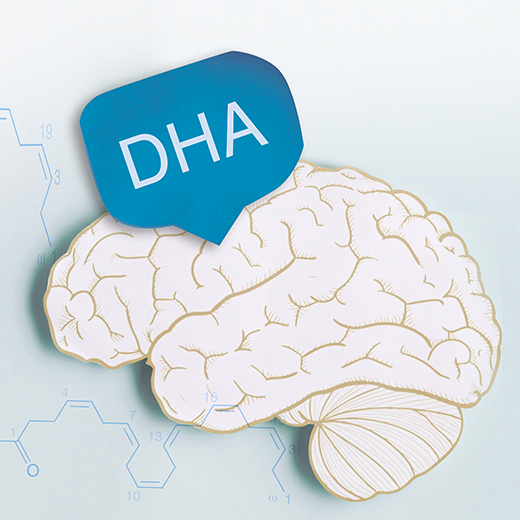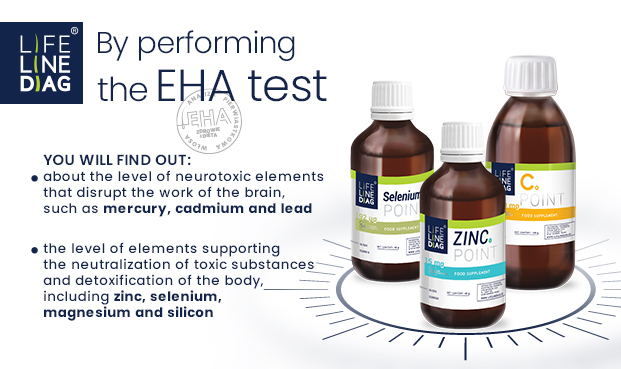 There is a temporal relationship between the emergence of disease epidemics autoimmune and neurodegenerative (which we can de facto include in the former groups). We associate the severity of these diseases with the mid-nineties, i.e., the moment when we started to change the composition of food, add to it various toxins, which initiated the process of destroying the intestinal mucosa and consequently led to the leaky gut syndrome and autoimmune processes. Alzheimer’s disease is progressive neurodegenerative disease that was first described in 1906 by the German neuropathologist Alois Alzheimer. This happened twenty years after the introduction of sugar and refined flour in unlimited amounts for general circulation, which, as it turns out, was not without significance.
There is a temporal relationship between the emergence of disease epidemics autoimmune and neurodegenerative (which we can de facto include in the former groups). We associate the severity of these diseases with the mid-nineties, i.e., the moment when we started to change the composition of food, add to it various toxins, which initiated the process of destroying the intestinal mucosa and consequently led to the leaky gut syndrome and autoimmune processes. Alzheimer’s disease is progressive neurodegenerative disease that was first described in 1906 by the German neuropathologist Alois Alzheimer. This happened twenty years after the introduction of sugar and refined flour in unlimited amounts for general circulation, which, as it turns out, was not without significance.
The topic of diet is discussed in detail by a neurologist, member of the American College of Nutrition, Dr. David Perlmutter in his documentary series “How to Prevent Alzheimer’s Disease”. The author has obtained a doctoral degree of medical sciences at the University of Miami School of Medicine, where he received the Leonard G. Rowntree Research Award. Dr. Perlmutter has published many articles in prestigious journals, including the New York Times.
Dr. Perlmutter is changing the approach to nutrition. As he says, “Food is much more than just a source of energy – it is information. Directly communicates with the body, brain and even GOUT. It very clearly determines whether we enjoy full health or suffer from chronic diseases. When it comes to cognitive functions, it affects both the structure of the brain and how well, it works. – Food choices can therefore be a powerful weapon to help fight off Alzheimer’s disease or can provide a quick path to a malfunctioning brain. Eating appropriate foods and avoiding the harmful ones is crucial here. Dr. Perlmutter states that our diet plays a direct role in creating the level of inflammation in the body. When it is rich in processed foods, causes insulin resistance and chronic hypertension.
ALZHEIMER DIABETES TYPE 3?
The diet for Alzheimer’s disease should primarily be a low-carbohydrate diet. Just to have proper blood sugar level, choose foods with a low glycemic index and load. The glycemic load considers not only the type of carbohydrates and the rate of their absorption, but also their amount contained in a portion of a given product, therefore it is a more accurate indicator than the glycemic index. Products with a low glycemic index and load are also beneficial for the microbiome. Conversely, eating high-laden foods such as sodas, bread, sugar, and sweets causes inflammation of the brain.
Recently, researchers proposed the term “type 3 diabetes” for Alzheimer’s disease, the term which has been discussed in more detail, inter alia, in Biochim Biophys Acta in 2017. The name is not accidental, because the disease shares molecular and cellular characteristics with type 1 diabetes, diabetes type 2 and insulin resistance, Dr. Ben Johnson, a physician, biologist, and psychologist in a simple and humorous way defines what the word “sugar” means for him: – Sugar is bread, pasta, oats, wheat, rye, and other grains. This list also includes corn, (…) potatoes (including french fries), and more starch products. So, if the product in question is white or was white, generally don’t put it in your mouth, unless it’s cauliflower. – That is, all products with a high glycemic index are harmful to our health since they are consumed excessively causing the level of glucose in blood to rise.
The diet for Alzheimer’s disease should primarily be a low-carbohydrate diet. Just to have proper blood sugar level, choose foods with a low glycemic index and load – avoid bread, sugar and sweets and choose vegetables of various colors instead.
Interestingly, insulin also plays a key role in the formation of amyloid plaques. Hence, in the prevention and treatment of Alzheimer’s disease, an adequate diet in which avoiding sugar and high carbohydrate foods is crucial. It’s level jumps blood glucose, causes Alzheimer’s disease, diabetes, and cancer. They cause damage throughout the body, from the brain to the pancreas to the capillaries and nerves. They contribute also to the development of cancer cells. They are one of the most damaging factors to our health.
The situation in which the brain develops insulin resistance is very disadvantageous because it’s the main “fuel”; there is just glucose. To bring about the regression of the disease, it is necessary to change your diet. Get away from excess carbohydrates as well as any chemical preservatives, pesticides, and herbicides, which are very pro-inflammatory. Inflammation causes damage to insulin receptors, and this occurs throughout the body, including the brain.
A low-carbohydrate diet is a diet rich in multi-colored vegetables (avoid those rich in starches such as potatoes and sweet potatoes) and healthy fats, supplemented with low nuts and fruit glycemic index, such as blueberries or citrus. You should also include proteins in your diet, but in limited quantity. It is recommended to eat fatty fish such as wild salmon, mackerel, sardines, and herring as well as free-range chicken eggs. Such a diet stabilizes blood sugar and maximizes the amount of nutrients, especially those that protect the brain.
Vegetables are the most important for brain health as they contain anti-inflammatory substances and antioxidants. Green leafy vegetables and cruciferous vegetables such as broccoli are especially recommended, and so is cauliflower. Products should be selected fresh, unprocessed, preferably organic. Avoid any chemical additives, such as preservatives, flavor enhancers, pesticides, or herbicides. These substances destroy the gut flora. If we cannot afford to purchase ecological products, we should clean the food with an ozonate intended for domestic use. The development of Alzheimer’s disease may also be affected by food intolerance, especially gluten and dairy. In this case, an elimination diet should be followed. Dr. Aristo Vojdani, in a study carried out in 2013, confirmed that in people suffering from celiac disease, neurons become inflamed.
FATS
Another part of the diet that benefits the brain, along with vegetables, is healthy fats, such as olive oil, olives, avocados, coconut oil and nuts. Dr. Ben Johnson says: Healthy fats are essential to life. They are the main source of energy for the body. We were told to stay away from fat, but this approach is very harmful to health. – However, we must remember to avoid the trans fats that are produced by industrial hydrogenation, i.e., hardening of vegetable oils. During this process, the vegetable oil is enriched with hydrogen particles and is subjected to very high temperatures. Heated oil molecules bind with them. As a result of this process, a new compound is formed – hydrogenated (hardened) fatty acid. Hydrogenation increases the shelf life of vegetable oils, so manufacturers add them to products with a long shelf life. Trans fats are harmful because they have the wrong effect. Their consumption causes the body to produce new cells from this “defective one material”, which of course has a long-term negative effect on health and leads to the development of inflammatory conditions, that also affect the brain.
Trans fats are found in all fast-food products, especially those fried on repeatedly used deep fat, i.e., mainly fries. They are also found in soups and sauces in powder, margarines, bread, chips, sticks, crackers, and any other salty foods snacks. They are also found in sweets, primarily donuts, as well as cakes, cookies and in chocolate.
Consuming trans fats provides the body with “defective material” to produce new cells, which of course has long-term negative health and developmental inflammation effects, that also affect the brain.
A diet that works for the brain is rich in healthy fats such as olive oil, avocado fat, oil coconut and nuts. Over 50% of the fat in coconut oil is medium chain fatty acids MCTs, which are easily digestible due to their shorter structure. In the Low in carbohydrate diet, MCT fatty acids can also turn into ketones, i.e., alternative “fuel” for the brain, formed in the process of the breakdown of fats in the so-called ketosis. MCT fatty acids can cross the blood-brain barrier, which makes them a good source of energy for brain cells, especially since they protect the nerve cells from being damaged by free radicals. The ketogenic diet alters the brain’s metabolism, forcing it to use ketone as a source of energy. This way, there is a possibility of reprogramming the brain to function properly.
Scientists from the Mayo Clinic publishing in the „Journal of Alzheimer’s Disease” announced the results of
their research, which verified the influence of diet on the risk of developing dementia. For almost 4 years they watched a group of over 2,000 elderly people and carefully monitored the levels of their food proteins, fats, and carbohydrates. The subjects were also subjected to fitness and mental health assessment every 15 months to determine if they were developing problems related to dementia. The results were impressive in every way. Risk of dementia in people who consume excess carbohydrates increased by almost 90%. It turned out that in those people whose calories came mainly from healthy fats, the risk of developing dementia was reduced by approximately 44%. Another study published in „The National Health and Nutrition
Examination Survey”, also deserves attention since it found that a diet high in healthy fats is associated with a better ability to learn and remember, while deterioration in these skills goes hand in hand with a high-carbohydrate diet.
It is also interesting that over 90% of all polyunsaturated fatty acids Omega-3s in the brain, in addition to 10 to 20% of all fat in the brain, are DHA fatty acids. They are concentrated mainly in the gray matter and constitute an important part of the cell membrane neurons. They also play an important role in mitochondrial function and structure, release neurotransmitters, DNA expression, the formation of the myelin sheath around each neuron, reducing neurological inflammation as well as for nerve cell growth and differentiation, affecting the condition of the frontal lobes of the brain, allowing the executive functions, i.e., the set, to maintain the cognitive skills necessary to control and self-regulate behavior. DHA acids allow for the creation, supervision, and implementation of an action plan.
Research has shown that people who consume excess carbohydrates have a higher risk of dementia by almost 90%. In contrast, the risk of dementia in people whose calories were primarily from healthy fat was reduced by approximately 44%. Research has also shown that a diet high in healthy fats is associated with a better ability to learn and remember while when the deterioration of these skills goes hand in hand with a high-carbohydrate diet.
The brain can store DHA. Its half-life in the human brain has been estimated to be 2.5 years, while in peripheral tissues half of it disappears in just two minutes. Unfortunately, the body does not produce too much DHA, so we should supplement it. Tests showed a correlation between higher DHA levels, measured by blood tests, and a better non-verbal reasoning and mental flexibility in people aged 35 to 54.
485 participants took part in the “Memory Improvement with docosahexaenoic acid (DHA) Study” (MIDAS) study healthy elderly people (mean age 70 years) who reported mild memory loss. They received either 900 mg of DHA or a placebo for 24 weeks. In the DHA group improvement in episodic and visual memory was demonstrated, and there was a correlation between DHA levels in the blood and episodic memory.
Data from the Framingham Study associate high levels of DHA in the blood with a lower risk of mild cognitive impairment or dementia. In 809 people (mean age 76) without dementia at baseline, a nine-year check showed that in those with the highest levels of DHA, the risk of all types of dementia was reduced by 47%. DHA can help lower the level of homocysteine, the excess of which is associated with an increased risk of coronary artery disease occurrence and dementia, including Alzheimer’s disease. Elevated levels of homocysteine are often seen in people who have mutations in the MTHFR gene.
At the root of virtually all chronic degenerative diseases, including Alzheimer’s, there are inflammatory states. DHA and other omega-3s help remove chronic inflammation by activating so-called specialized pro-distribution mediators. In the journal “Circulation Research” a study has been published on these pro-resolution mediators (SPMs) that are made from omega-3 fatty acids present in fish oils. During inflammation, they are involved in controlling the behavior of white blood cells and platelets by activating a self-healing mechanism, which speeds up the healing process. In the field of regulating inflammation in the body, research is currently focused on the so-called endocannabinoid system, which regulates, among others energy economy, neurohormonal connections, neuroimmune, motor activity, motivation, mood, feeling hungry and satiety, as well as energy use and control of lipid and carbohydrate metabolism.
The examined chemical components of this system, anandamide (AEA) and 2-AG, bind to a specific receptor located on the surface of the cell, which leads to increased inflammation, fat production, storage, and triglyceride production. Omega-3, both EPA and DHA, can produce other cannabinoids that inhibit the stimulation of this receptor and thus help reduce inflammation in the body. Therefore, as Dr. David Perlmutter emphasizes: “It is recommended to consume about 1000 mg of DHA, obtained from fish or sea algae, daily”.
ADVANCED GLYCATION PRODUCTS (AGEs)
In 2015, scientists in Taiwan discovered the existence of a relationship between Alzheimer’s disease and diet
rich in glycotoxins (AGEs), which are formed under the influence of high temperature during frying, grilling or caramelization. Research has shown that eating meals rich in AGEs on a regular basis stimulates the formation of β amyloid deposits, glycotoxin deposits, gliosis, and cognitive problems. For example, one serving of raw chicken contains 800 AGEs. After frying it, the AGEs level rises to 8,000. Meanwhile, glycotoxins are not absorbed and digested, but only accumulated by the body with great harm to its health. In 2014, a study was carried out on mice which were fed with products with high AGEs. The results showed a high decline in their cognitive functions. Research provided the same result in healthy people 60 years and older in whom an analogous test was performed.
Studies have shown that regular consumption of deep-fried and grilled meals rich in glycotoxin AGEs, trans fats and poor in nutrients, stimulates the formation of cognitive problems.
Another study from 2015 looked at heterocyclic aromatic amines (HCAs) as a thermal breakdown effect of proteins is also released during grilling. HCA has also been shown to contribute to the development of Alzheimer’s disease. In 2018, further studies were carried out, by adding spices and herbs, incl. turmeric, coriander, cumin, and rosemary to grilled meat. The natural antioxidants they contain have been shown to act as an inhibitor of mutagenic heterocyclic amines (HCAs), preventing the accumulation of mutagenic amines. Of course, the healthiest option would be to opt out of grilling and frying for cooking or stewing dishes.
TOXIN AVOIDANCE AND ELIMINATION
Certain substances are particularly neurotoxic and damage the brain. It should replace heavy metals such as mercury or lead, phthalates, dioxins, pesticides, herbicides, bisphenol A and many other. We can find the sources of toxins in food, air, cosmetics, and cleaning products. The two main neurotoxins that should be particularly avoided are glyphosate (a component of many herbicides) and artificial sweeteners as they damage the microbiome, which negatively affects metabolism and impairs the functioning of the immune system. It has been shown that artificial sweeteners like aspartame, sucralose, saccharin, and others are associated with an increased risk of weight gain, and even the onset of type 2 diabetes. They change the functioning of the intestinal bacteria, disrupting their balance and the activity of beneficial microbes. Espartame should be mentioned here, which is an excitotoxin, a substance that damages and kills neurons.
Comparing the risk of developing diabetes in people who consume artificially sweetened beverages with those of individuals drinking drinks with added sugar, it turned out that the first group has a bigger risk of diabetes. Of course, this seems counterintuitive, but new research is revealing the mechanism behind it.
In a series of experiments, Israeli scientists demonstrated on animals in laboratories and humans that artificial sweeteners cause intestinal dysbiosis, which leads to changes in metabolism, especially that of sugar. These researchers were able to induce diabetes in laboratory animals merely by feeding them artificially sweetened foods. They also observed changes in their intestinal microflora.
Subsequent studies showed that faecal samples from animals that have been exposed to artificial sweeteners such as aspartame and transplanting these samples into laboratory animals that did not have gut bacteria increased also, the risk of developing diabetes. Additionally, scientists have found that similar changes occur in human intestinal microflora and pointed to the fact that this type of change in the composition of bacteria lead to metabolic changes that pave the way for diabetes. So, artificial sweeteners contribute to increase body weight and worsen glucose tolerance by inducing dysbiosis and altering composition and functioning of the intestinal microflora.
One of the most important parts of the brain’s immune system is microglia, or immune cells, which, among others help monitor the environment in the brain. When the brain inflames, the microglia seem to change in a way that exacerbates the inflammation. It happens especially when they are exposed to environmental toxins. Another toxin that damages our brain are endocrine disruptors. The action of hormones, especially estrogen, testosterone and insulin can interfere with BPA, for example. Nitrites are also harmful nitrates (preservatives) as they lead to the formation of harmful insulin resistant nitrosamines. To reduce inflammation in the body, avoid exposure to toxins and eliminate those already accumulated. This can be achieved by cleansing the liver, kidneys, and lymphatic system, and by introducing appropriate mineralization into the diet, without which it is impossible to remove heavy metals effectively. A way to cleanse the body and an important element in the fight against Alzheimer’s disease, says Dr. Ben Johnson, is also intermittent fasting for 12 to 16 hours a day and not eating any food 3 hours before bedtime. Chlorella (freshwater algae o cleansing action), cilantro (coriander extract), zeolite and glutathione.
Without proper mineralization in the diet, heavy metals cannot be effectively removed from the body. Magnesium and silicon help to neutralize aluminum, and zinc and selenium – mercury. Iodine removes excess fluoride and BPA. A test that allows you to determine the level of toxic elements, as well as an analysis to detect if there are any deficiencies in the body of elemental nutrients is the hair analysis EHA.
To cleanse the body of toxins, which Dr. Ben Johnson also pays a lot of attention, is adequate hydration of the body. We need many fluids inside as well as outside the cell to get through the lymph to get rid of waste products. Dehydration is bad for the brain and can cause neurological symptoms and even cause it to contract. The quality of the water is also important. It absolutely should not be tap water or plastic bottles that contain bisphenol and other harmful substances. It must be properly cleaned with activated carbon or a filter or ozonate and stored in a glass container. A small amount of Himalayan salt should be added to it, because, as Dr. Ben Johnson emphasizes: – The life of water is minerals. It is also worth noting that the lymph can only be “lifted” when, in addition to proper hydration, the body undergoes regular physical activity
THE ROLE OF SUPPLEMENTS IN PREVENTING ALZHEIMER’S DISEASE
Adequate supplementation may reduce the risk of developing Alzheimer’s disease. Ingredients that are worth supplementing in the diet include: DHA, MCT, folates, vitamin B12, vitamin D, as well as melatonin, which is responsible for the quality of sleep. Research published in „Frontiers in Aging Neuroscience” in 2017 shows that proper levels of melatonin can restore integrity to blood-brain barriers. Meanwhile, its deficiency is often noted in the elderly.
Nerve cells also cannot function properly when they are depleted of minerals. without which the body is unable to produce even adrenaline or cortisol. Nutritional elements are therefore critical for our health and existence, and their absence leads, inter alia, to neurodegeneration of the brain and the deposition of an increased number of heavy metals in it, co-responsible for the Alzheimer’s disease. Deposits of toxic elements seem to be an important influencing β amyloid build-up factor in the brain, which causes inflammation and leads to neurons dying away.
Dr. Daniel Nuzum says there are two particularly dangerous chemicals to possess tremendously destructive effect on the brain and nervous system. The first is the compound of fluorine and mercury, the second is a combination of fluorine and aluminum. These compounds enter the brain and cause neuronal death, and in place of dead brain cells, so-called β-amyloid peptide deposits are formed, which block access to memory and lead to Alzheimer’s disease. If there are nutrient deficiencies, and at the same time it is exposed to heavy metals (in today’s times, practically all of us are affected), there is a double probability of their absorption by the brain. Therefore, you should take care of the correct replenishment of nutrients, i.e., minerals and vitamins that stop toxins from entering your cells. Selenium, iodine, silicon, and magnesium neutralizes many toxins in the body. Magnesium and silicon help to neutralize aluminum, and zinc, selenium, and mercury. Iodine removes excess fluoride as well as BPA. Research that allows to determine the level of toxic elements in the body, as well as to check whether they are present in its nutritional element deficiency is the EHA, element hair analysis.
If there are nutrient deficiencies in the body, and at the same time it is subjected to exposure to heavy metals, there is a double likelihood of their absorption into the brain. Therefore, it is important to ensure the correct replenishment of vitamins and minerals that stop toxins before entering the cells.
Another important factor related to cognitive decline, and at the same time conducive to the development of Alzheimer’s disease, is vitamin D deficiency. This vitamin plays an important role in the health of the brain and the entire nervous system, as well as for maintaining proper functioning composition of the microbiome. It affects over 800 different genes, controls insulin function in the brain and helps to prevent depression. Dr. Dale Bredesen says that to maintain a healthy brain is to maintain vitamin D at 50 to 80ng / ml.
B vitamins also have a positive effect on memory and cognitive functions of the body. When the level of homocysteine exceeds 13 mol / l patients begin to show symptoms of brain fog and develop cognitive problems. To improve homocysteine methylation and lowering its level below 8 mol / l, vitamin B12, B5, B6 and folic acid are needed; the appropriate levels of which reduce the risk of developing Alzheimer’s disease. People with a mutation in the MTHFR gene, responsible for maintaining the correct concentration of homocysteine in the bloodstream should supplement with vitamin B12 and folate in the form of methyl.
To improve the condition of the microbiome, which also affects the nervous system, it is necessary to take prebiotics, which are substances that promote multiplication and growth of beneficial intestinal bacteria. Their good sources are, inter alia, chicory, Jerusalem artichoke and dandelions officinalis, onion, garlic, and leek, as well as omega 3 fatty acids (flaxseed, chia seeds and fish). Besides, it is advisable to eat fermented foods and probiotics, especially the use of targeted probiotic therapy, preceded by an appropriate test. Receiving Probiotic supplements can help balance the gut flora and improve the functioning of the immune system.
It is now common knowledge that we produce new nerve cells throughout our lives, between others in the hippocampus. As it turns out, their growth, called neurogenesis, is under control by Brain-derived neurotrophic factor, or BDNF. It is a protein belonging to the nerve growth factors. BDNF acts on selected neurons of the central and peripheral system by supporting the survival of already existing neurons, it promotes the formation and differentiation of new neurons and synapses and induces the growth of new brain cells. In 2013, it was discovered that whole coffee fruit concentrate (which should be taken in the evening) raises the BDNF level by as much as 143%.
There are several hypotheses about the causes of Alzheimer’s disease. The so-called tau hypothesis is that the morbid chain of events begins with an abnormality in the structure of the tau protein, present almost exclusively in nerve cells. Studies have shown that a substance that positively affects tau protein, curcumin is present in turmeric, which also activates ability-enhancing anti-inflammatory genes, while reducing blood sugar and improving metabolism.
In conclusion, it should be borne in mind that it is possible to do this by modifying your diet and lifestyle to avoid Alzheimer’s disease, even if there is a genetic predisposition to it. That is why it is worth to start introducing even small changes in everyday habits to improve the functioning of the immune system and the work of the brain. Keep in mind that the brain is malleable, and it has the ability throughout life to create new neurons and connect them.
Katarzyna Błochowiak
Dietary advisor with certificates in general and clinical dietetics and EHA diagnostics (elemental hair analysis). Student of Functional Medicine at FUNCTIONAL MEDICINE UNIVERSITY in the United States. A graduate of courses organized by FUNCTIONAL MEDICINE COACHING ACADEMY in Chicago. In her professional work, she teaches patients a conscious approach to nutrition and shaping a healthy lifestyle.
Katarzyna Błochowiak – Choroba Alzheimera cz.2 – jak zachować zdrowy mózg dzięki diecie i suplementacji [ALZHEIMER’S DISEASE part 2 – How to keep your brain healthy with diet and supplements], Diet.Point, 2(5)/2022, s.28-35.

















